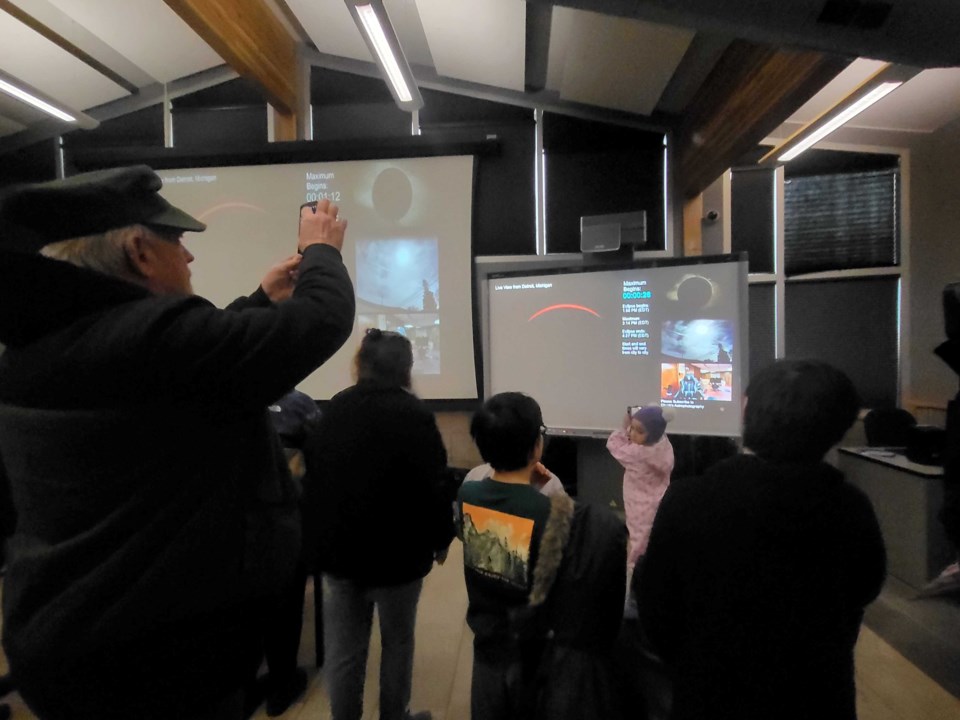THUNDER BAY – Despite the cloudy, damp day, dozens of families travelled to Fort William Historical Park on Monday to try to catch a glimpse of the eclipse.
And while they didn’t get to see the Moon cross over the Sun in person, the historical park had a live look of the celestial event from a feed in Detroit, Michigan.
Esper Benwell Atwood, 9, had a chance to hold a real meteorite and said it was a great opportunity to learn things outside of school.
Benwell Atwood said the cloudy weather didn’t put too much of a damper on things.
“It means we probably won't be able to see too much of the sun,” they said.
Morgan Sand, 15, went to the park because she was interested in learning more about the solar eclipse.
“My science teacher was telling me about it and I was interested in learning more space things because I have a space project too,” Sand said.
She went into the observatory to learn more about the eclipse and said the rain didn’t ruin the experience for her.
“I love the rain,” Sand said, adding that she couldn’t decide what her favourite activity was at the historical park.
“My favourite has probably been all of it. I can't just choose one.”
In addition to the meteorites, there also was a display based on Kepler’s Laws of Planetary Motion that showed the different speed of planets as they travel around the sun, and a display on Anishinaabe culture and perspectives on the sky.
As it got down to the final minute before the total eclipse, staff at the historical park announced they would countdown the final 10 seconds.
When the time came, everyone in the room joined in on the countdown.
Jonathon Reid, environmental ecological and outdoor education specialist at the historical park, said people have always been fascinated by the sky.
“We have records from 3000 BC of cultures that are talking about eclipses. For a long time, eclipses were connected with culture and religion,” Reid said.
“And I also think people just like looking at cool things in the sky.”
The historical park will offer programming related to astronomy and astrophysics in December and also next year in February.
